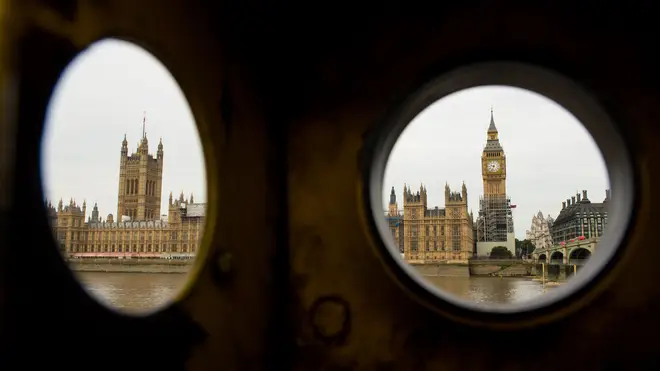
Tom Swarbrick 4pm - 7pm
28 January 2022, 13:04

The Earl of Erroll voiced concern about children believing some sex acts are suitable in a new relationship.
Online pornography normalises sexual behaviours which are not “how to go around wooing a woman”, a peer claimed as ministers faced calls to introduce age verification checks.
The Earl of Erroll told the House of Lords that freely available adult content “normalises” some sex acts, adding he does not believe these are how someone should start a relationship.
He also said it can result in children believing such sexual behaviours are part of “how you should treat a girl when you first start going out with her”.

Tighter controls designed to protect young people from adult content online were included in legislation approved by Parliament in 2017.It would have allowed a system, under the watch of the British Board of Film Classification (BBFC) as regulator, requiring commercial pornography websites to carry out age verification checks on users or face having payment services withdrawn or being blocked for UK internet users.
But the plans were hit by a series of delays amid concerns about how checks would work and fears for user privacy, and they were later canned by the Government.
Instead, ministers expect the forthcoming Online Safety Bill to address the issue.
The Earl of Erroll raised questions about why measures in the 2017 Act had not been implemented, before adding: “The thing that really worries me isn’t just the extreme pornography – which quite rightly has been mentioned – it’s just the stuff you can access for free, which is what you might call the teaser stuff just to get you into the site.
“It normalises a couple of sexual behaviours which are just really not about how to go around wooing a woman, because most of the stuff you see upfront is about men almost attacking the women.
“I’m afraid it normalises, should I be absolutely precise about it because I think people pussyfoot around it? It normalises anal sex and blowjobs.
“I’m afraid I don’t think that is the way you go about a relationship, a start of a relationship.
“Starting off children at the age of 10, 11, goodness knows when they start watching this stuff, that this is how you should treat a girl when you first start going out with her, probably in your early teens, is not a good idea and you could have stopped it.
“And for some reason the executive decided not to, and I’d love to know who it was in there that kept blocking it, because I think there’s some funny people in there and it really worries me.”

Liberal Democrat Baroness Benjamin, a vice-president of Barnardo’s who is also known for her work on children’s television, said: “If, as the Government claims, it will take two years for Ofcom to be designated as a regulator under the Online Safety Bill, it could be 2025 or later before age verification and curbs on extreme pornography are in place.
“This is totally, totally unacceptable.”
Crossbench peer Baroness Kidron, who chairs the children’s safety group the 5Rights Foundation, said: “Frictionless access to online pornography is not an equivalent to the hazy memories of men who once read a soft porn mag behind the cricket shed.
“It is a multibillion industry delivering eye-watering violence towards women and girls, delivered by a tech sector proven to be driven by profit and with a wilful disregard for children’s safety and wellbeing.”
The remarks came as peers considered the Digital Economy Act 2017 (Commencement of Part 3) Bill at second reading.

This was tabled by DUP peer Lord Morrow in an attempt to implement the age verification part of the 2017 legislation, thereby introducing some protections sooner and allowing the Online Safety Bill to build on them.
Conservative frontbencher Lord Sharpe of Epsom said the Government does not support Lord Morrow’s Bill.
He explained how the Government announced in October 2019 it would not be commencing part three of the 2017 Act.
Lord Sharpe went on: “The proposed measures in the Online Safety Bill will mean platforms have clear legal responsibilities for keeping their users safe online.
“Services which are likely to be accessed by children will be required to protect them from harmful content on their sites, including pornography.”
Lord Sharpe said the forthcoming Bill “goes further” than the 2017 Act by ensuring social media is covered by the measures.